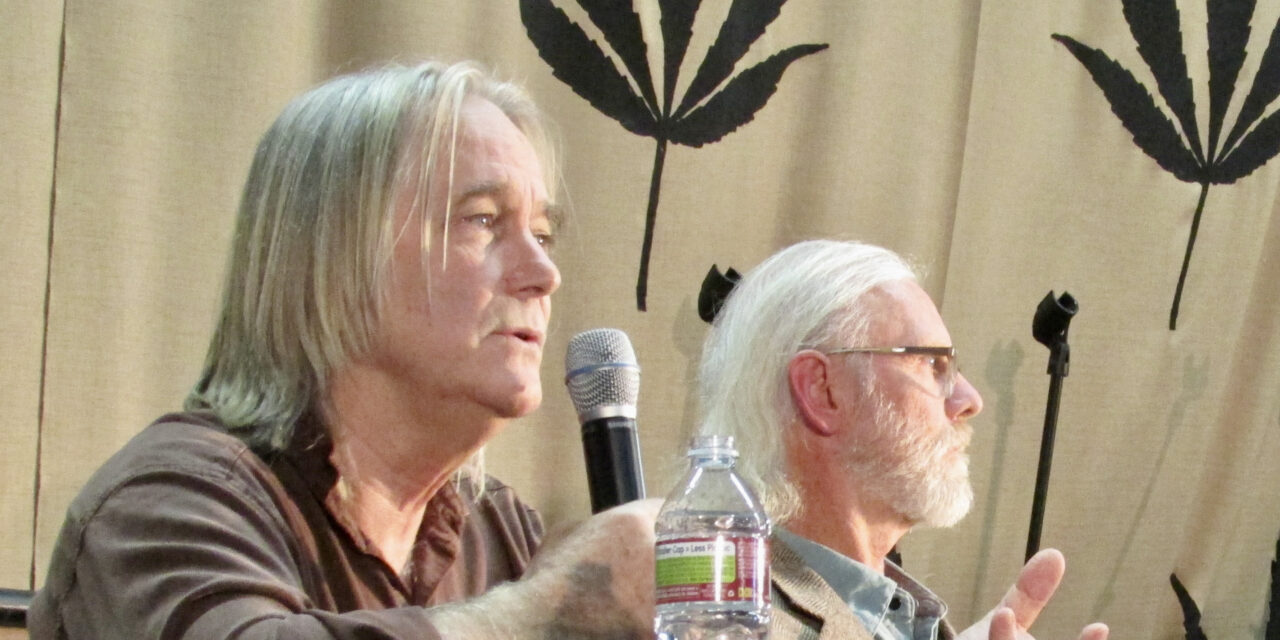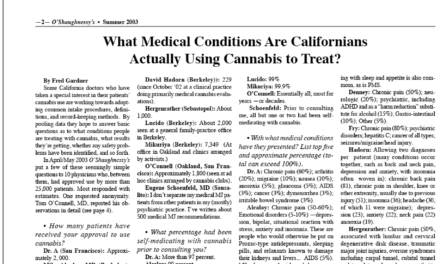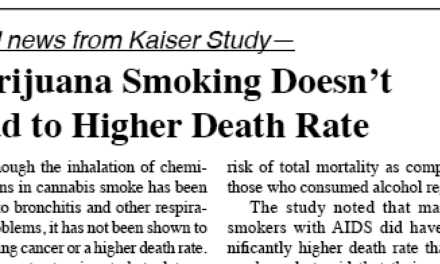12/17/21 Though we didn’t know it at the time, the bustling Emerald Cup held at the Sonoma County Fairgrounds in December, 2019 —just before Covid-19 hit and the so-called Legal Cannabis Industry got undermined by the taxes and regulations its leaders had greedily agreed to— was really the end of the line. The diminished gathering at the fairgrounds last weekend was called “the Harvest Ball” and did not include an awards ceremony. As acknowledged by Emerald Cup founder Tim Blake in an issue of Skunk magazine timed for release at the event, “Like it or not, Los Angeles is now the focal point for cannabis in the United States.” And so the awards for best products will be conferred at an event scheduled for Long Beach in February 2022.
Skunk is a glossy quarterly, rich in content, that has become the unofficial journal of the legacy growers. (Albion’s Pebbles Trippet is a senior editor and regular contributor. She says they have a distribution deal with Barnes & Noble.) As Blake explained in his piece, the event he launched in 2004 is now “without doubt regarded as the most reputable and sought-after cannabis competition in the world. We intend to retain that title as federal legalization of cannabis takes place in the very near future. With our move into Los Angeles and its global connections to the entertainment, finance, and technology world, we are set up to expand the competition across the country and around the world.” In other words, the Emerald Cup is competing for market share in the Events sector of the Cannabis Industry, and the market is not centered in the Emerald Triangle.
It was fitting that it rained on Sunday. In the early years, when the Cup was held at “Area 101” north of Laytonville, it was always pouring. Vendors stood in puddles on the pavement. Attendees camped in a big field behind the structures. Half the campers knew how to pitch tents and keep them warm and well-lit; they were cozy and content. The other half were so stoned they didn’t know they were miserable. Cars driving through the dark, muddy field came perilously close to the tents. It’s a miracle no one got run over.
Tim Blake’s crew did not serve hippie food that tasted like rabbit chow. They could cook and there was meat in the lasagna! Every year more people came. In addition to providing an outlet for small growers, bakers and tincture-makers from Northern California, the Emerald Cup presented panels focusing on medicine, science, law, and politics.
In 2012 Blake wanted to stage the cup at the Ukiah Fairgrounds but Supervisor John McCowen nixed the plan. Mendocino County’s loss became Sonoma’s gain as the Emerald Cup infused a reported $10 million into the Santa Rosa economy. Small wonder Blake is bitter towards the local politicians who have somehow made Mendocino’s regulations more onerous than the state of California’s. He wrote in Skunk and repeated from a stage at the fairgrounds on Saturday, “the Emerald Triangle is still reeling from the political shell game that led to many of our small farmers fighting to survive.”
Maybe looking back years from now, the first Harvest Ball will be seen as a turning point for the beleaguered small growers. That was the optimistic assessment of Covelo’s Noel Manners, one of nine Mendocino County growers sharing a large booth in the Hall of Flowers (donated by Blake). “It was really wonderful how we were helping each other out, selling each other’s products, talking about the virtues of organic, sungrown marijuana. It really felt empowering.” The small growers’ goal is to establish farmers markets or the equivalent of wine-tasting rooms that will enable them to sell directly to consumers. —Fred Gardner





